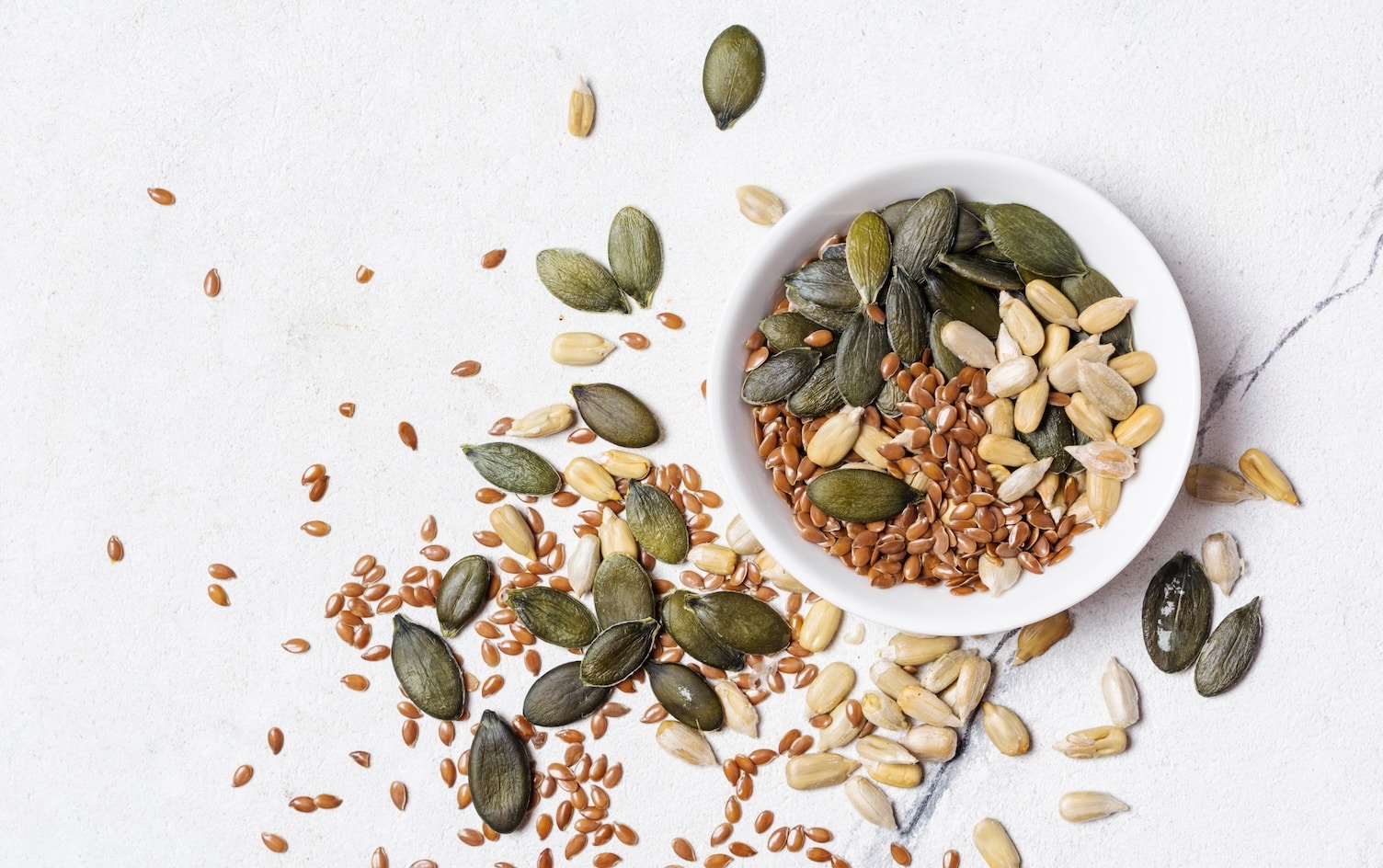Nutrition and sleep are very closely related. A diet high in processed foods, saturated fats, sugar, and sodium is linked to poor sleep. The flipside is also true. People with poor sleep patterns tend to eat more overall, have abnormal hunger hormone levels, and have low-quality diets. These easy tips are meant to improve both your diet and your sleep because they impact each other.
7 WAYS TO EAT FOR SLEEP
1. LIMIT YOUR SATURATED FATS
A high intake of saturated fat has been linked to a lower quality and shorter duration of sleep. To reduce saturated fat in your diet and help improve your sleep, try consuming fewer meats and dairy products. Instead, focus on getting healthier, plant-based fats like olive oil, tofu, nuts, and avocados.
2. TRY A MEDITERRANEAN DIET
Several studies have shown a connection between the Mediterranean diet and improved sleep. This diet is inspired by the eating habits of people who live near the Mediterranean Sea—think France, Spain, Greece, and Italy. There are no strict rules to this diet, but it is rich in heart-healthy fats like olive oil and nuts. Fruits, vegetables, whole grains, and beans play starring roles along with lean proteins like seafood and poultry. Reduce red meats and sugar to a few times monthly.
3. SNACK ON NUTS AND SEEDS
Research has also shown that nuts and seeds can aid in sleep. For example, walnuts contain tryptophan, which has been shown to promote sleep. Tryptophan is an essential amino acid the body uses to make melatonin and serotonin. Melatonin helps regulate sleep while serotonin helps to regulate mood, appetite, pain, and sleep. Try snacking on some nuts or maybe have a warm glass of your favorite nut milk before bed.
4. GET A DAILY DOSE OF MINERALS
Eating foods such as bananas and whole grains can help in promoting sleep. That is because these foods contain minerals like magnesium and potassium which have been shown to aid in sleep. Magnesium deficiency is linked with poor sleep, but keep in mind that getting more magnesium than you need does not give you any extra benefits.
5. ADJUST YOUR MEAL TIME
There’s no hard and fast rule about how close to bedtime you should have your last meal of the day. It’s unique to every person, so experiment with meal times to figure out what works best for you, then adjust your meals accordingly. Often, it also depends on how much and what you eat, so pay attention to those factors, too.
6. BE AWARE OF YOUR BEVERAGE INTAKE
Of course it’s not just about what you eat. Beverages also play an important role in sleep quality. While it’s important to stay hydrated for a good night’s sleep, caffeine, alcohol, or sugary drinks too close to bedtime can contribute to restlessness. Also try to hydrate throughout the day, rather than packing all your water in right before bedtime. Otherwise, you might wake up in the middle of the night to use the bathroom!
7. CONSIDER YOUR OVERALL LIFESTYLE
The relationship between nutrition and sleep is very complicated, and becomes even more so when you consider other factors, like stress, exercise, and environment. (Anyone else have trouble sleeping while traveling?) View your overall health as a big puzzle, and try linking all these different pieces together. Eventually, it’ll all come together.
Ready to take the next step? Unlock MyFitnessPal Premium to access custom goal settings, quick-log recipes, and guided plans from a registered dietitian. Premium users are 65% more likely to reach their weight loss goals!




